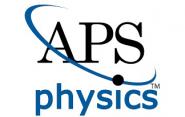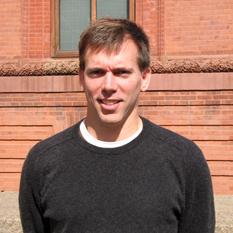Corey O'Hern Named American Physical Society Fellow

Corey O’Hern, Associate Professor of Mechanical Engineering & Materials Science, Physics, Applied Physics & Graduate Program in Computational Biology & Bioinformatics, has been elected a 2017 Fellow of the American Physical Society (APS).
 The number of APS Fellows elected each year is limited to no more than one half of one percent of the membership. The Fellows are chosen by peers in their research areas for outstanding contributions to physics.
The number of APS Fellows elected each year is limited to no more than one half of one percent of the membership. The Fellows are chosen by peers in their research areas for outstanding contributions to physics.
O’Hern was cited for his computational and theoretical studies that have elucidated the microstate statistics, protocol dependence, and structure of the configuration space of jammed packings of particulate materials, such as dense colloidal suspensions and granular media.
His research group now tackles a broad range of fundamental questions in soft matter and biological physics using a combination of theoretical and computational techniques. In soft matter, the group seeks a predictive understanding of glass and jamming transitions, in which materials such as granular media, dense colloidal systems, and foams, develop solid-like properties in the absence of crystallization over a narrow range of control parameters. In the area of biological physics, the O'Hern research group has focused on dense packing in protein cores, crowding in the cytoplasm of bacterial cells, and collective properties of cells in developing tissues.
He has served as the Chair for the American Physical Society’s Topical Group on Statistical and Nonlinear Physics (2010), and as Director of Undergraduate Programs for Yale’s Raymond and Beverly Sackler Institute for Biological, Physical, and Engineering Sciences (2008-present). He is the co-founder and now member of the Executive Committee for Yale's Integrated Graduate Program in Physical and Engineering Biology (2008-present), and serves as Director of Undergraduate Studies for the Department of Mechanical Engineering & Materials Science (2011-present).
The American Physical Society (APS) is a nonprofit membership organization with more than 53,000 members that promotes physics through its research journals, meetings, and education, outreach, advocacy, and international activities.

